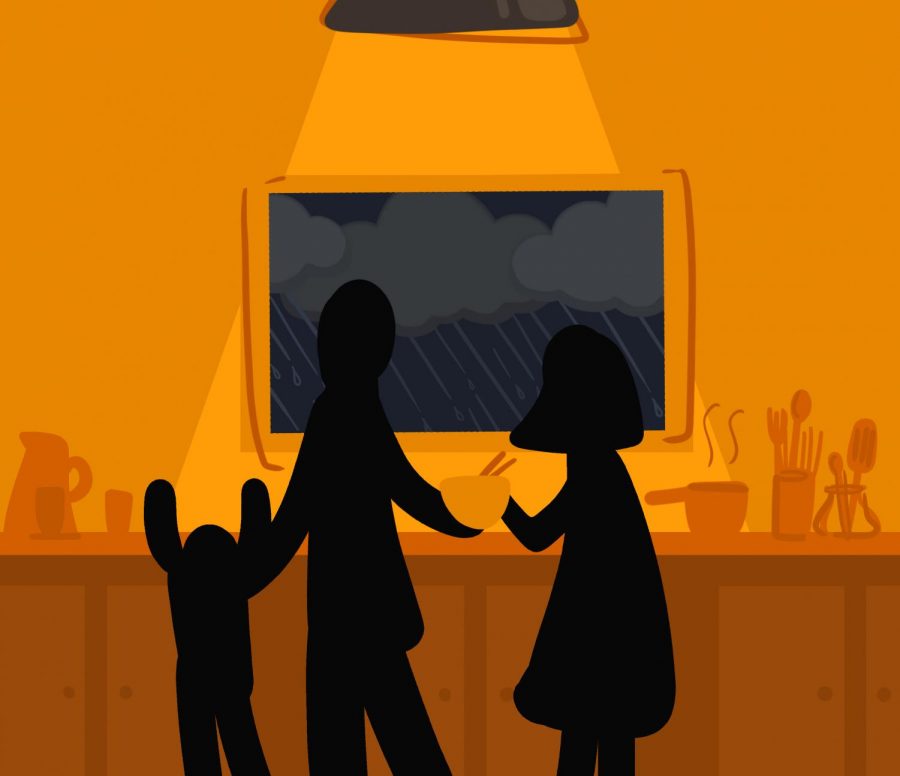Family Reunion Program Offers a Pause in Prison Life
April 30, 2018
On April 7, Miles Lewis walked out the gates of Wallkill Correctional Facility, the medium-security prison where he’d resided for more than a year. He wasn’t a free man, but for a weekend, he could imagine the feeling.
His destination was a trailer site at Shawangunk Correctional Facility, another prison located down the road. He’d earned what was called a Family Reunion Program scheduled visit, or an FRP, more commonly known as a conjugal visit. Lewis preferred the term “trailer visit,” but he didn’t really care what you called it. What mattered were the precious hours, Saturday at 12.30 p.m., until Monday morning at 8.30 a.m., unsupervised by correction officers, away from the noise and intensity of incarceration, alone with his wife, Jennifer Lewis.
Arriving an hour before Jennifer gave Miles adequate time to shower and clean the trailer, a single-wide, with two bedrooms, one bathroom, a kitchen and a living room.
“It feels like a small studio type of apartment,” Miles told The Kite.
Waiting for Jennifer to arrive, he was overwhelmed with anxiety, constantly looking out the window for the van that would ferry her from the prison.
By the time the blue Department of Corrections van pulled into the trailer park, Miles’ heart was pounding. He ran to the van to collect his wife’s four bags and carry them to Trailer #2. Once they were both settled, his nerves were instantly calmed.
The bags contained clothes and food, all of which had been carefully inspected by corrections officers in advance. No prison food this weekend — they’d be cooking their own meals. Lewis unpacked the items one by one: sirloin steak, broccoli, mac and cheese, ice cream, eggs, bacon, bread, water, cranberry juice and so on. During the weekend, Miles took breakfast duty, while Jennifer handled the lunches and dinners. The kitchen was equipped with a new stove, refrigerator and utensils, which were of course carefully checked before leaving the trailer.
Asked how he felt being unsupervised, Lewis said, “It felt like freedom.”
Married inmates all over New York state are allowed to participate in the Family Reunion Program trailer visits, so long as they don’t have expansive disciplinary issues or heinous crimes such as rape or murder on their prison records.
Non-inmates tend to view such visits in sexual terms — as opportunities for physical intimacy. But the participants generally view the program in more emotional and psychological terms.
“It was relationship altering,” said Rakeem Golson, another inmate at Wallkill, of his first FRP experience. “It felt like simulating being at home with my wife, stuck in the house on a rainy day.”
Keno, another Wallkill inmate agreed.
“It’s great.” Keno said, noting that children are also allowed to visit. “It means you can be a part of your kid’s life growing up, even if it’s just three days a month.”
Several inmates also pointed out that the program strengthens their family bonds and helps prepare them for the transition to life outside. From the perspective of prison administrators, it also reduces violence, as participants have a strong incentive to avoid fights or other serious infractions that might lead to canceled visits.
But what about leaving the trailer, and coming back to prison?
“It felt like getting rearrested,” Lewis said.
“The first time, I cried,” Keno admitted. “But then it’s like, you know you’re going back out. I go out on a trailer every 60 days.”
Additional reporting by Miles Lewis.
Read more from The Wallkill Journal’s April 30 issue here.
Email Keith Golden at [email protected].

























































































































































Mrs.Z • Sep 22, 2018 at 4:56 pm
My husband is incarcerated and we have been participating in the FRP program for 8 years and it is a wonderful program and along with the love you have for each other and the time you spend together it helps keep your relationship strong as well. Intimacy is not only sexual you need that alone time but intimacy that having coffee in the morning I’m talking to each other about what’s on your mind the night before laying in bed next to each other like people in the ad so I take for granted those things mean a lot for us laying on the couch with my husband’s head on my lap watching a movie just walking around on the ground on a nice day and yes we try to treat it like a two rainy day was staying in hanging out watching movies doing whatever cooking together laughing feeding each other whatever spending time together.
Sheree Benton • May 12, 2018 at 1:01 pm
I love this story! I felt like I was there. This sounds like a great program, especially for families and the fact that those who are eligible are careful about their actions in order to avoid consequences.
Kudos to the author, Keith Golden! How can he lose with the last name Golden?
She’ree Benton
Atlanta, GA